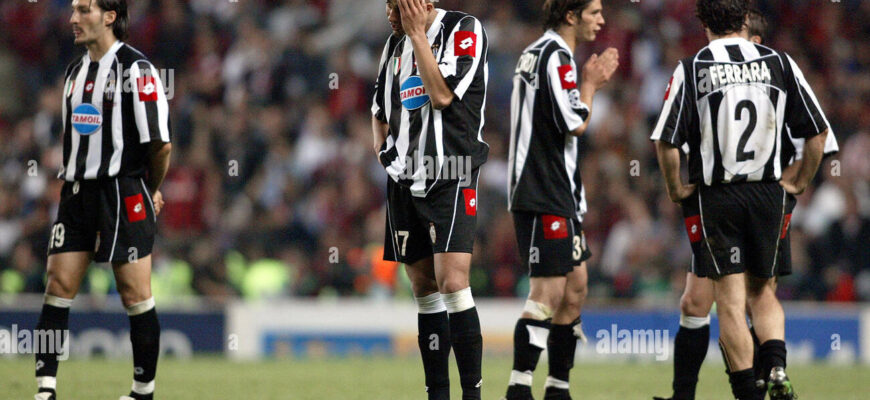The Allianz Stadium, usually a cauldron of expectation, witnessed a familiar script unfold on Saturday evening: Juventus 0-0 Milan. A clash between two Italian giants, replete with tactical intrigue and defensive solidity, ultimately delivered a stalemate. For the neutral, it offered a masterclass in denying space; for the ardent Bianconeri supporter, it was another chapter in a season narrative increasingly defined by a curious lack of goals.
A Tactical Chess Match, Lacking the Checkmate
From the first whistle, the encounter was less a brawl and more a meticulously choreographed dance, each side probing, but neither truly committing to an all-out assault. Juventus, under Igor Tudor, showcased their characteristic resilience, battling fiercely across the midfield. Chances were indeed created, but the final, decisive touch remained elusive. It`s a pattern that has become unsettlingly common for the Turin club, extending their sequence of low-scoring affairs under the Croatian`s stewardship.
The match was, by many accounts, a fair reflection of the play. Both teams exhibited moments of promise, yet neither managed to inflict a fatal blow. As Tudor himself conceded to DAZN post-match, “It was the kind of match we expected – difficult, against a strong team. We wanted to win, both sides created chances, and in the end, a draw is fair.” A fair result, perhaps, but for a club of Juventus`s ambition, “fair” often feels like a thinly veiled euphemism for “frustrating.”
Tudor`s Defense: The `Fatigue` Factor
The most debated aspect of Tudor`s management on the night centered around his decisions to substitute key attacking players like Kenan Yildiz and Francisco Conceição. In a game desperate for a breakthrough, removing creative outlets can often raise eyebrows. However, Tudor was quick to offer a pragmatic explanation.
“Yildiz, Conceição and David were tired – they’ve played so much. We tried to finish with more cover and energy.”
This statement, while understandable from a physiological standpoint, highlights a perennial challenge for modern football managers: balancing player welfare with the immediate need for goals. The relentless schedule often pushes athletes to their limits, forcing coaches to make tough calls that prioritize long-term sustainability over short-term offensive fireworks. One might almost hear a faint echo of managerial sigh, acknowledging the paradox of wanting offensive prowess from players who, quite simply, run out of steam.
Bremer`s Return: A Silver Lining?
Amidst the attacking woes, a small glimmer of positive news emerged regarding the status of centre-back Gleison Bremer. The Brazilian defender, a vital cog in Juventus`s defensive machine, has been gradually recovering from an injury that sidelined him for a significant portion of the previous season. While he featured briefly, Tudor opted for caution, choosing not to risk a full comeback prematurely.
“He felt some discomfort and we didn’t want to risk him. After the break, he’ll be fine.”
This measured approach to Bremer`s recovery underscores the club`s careful planning, ensuring that while the attack searches for its rhythm, the defense remains robust, bolstered by key personnel returning to full fitness.
The Unspoken Truth: Goals Win Games
Tudor`s broader assessment of Juventus`s predicament was both stark and refreshingly direct. He acknowledged the obvious missing ingredient:
“With two more goals, we’d have two more wins. That’s football. We have to keep working – we’ll always be on track.”
This succinct observation perfectly encapsulates the frustration. Juventus are creating chances, they are defensively sound, but the clinical edge, the ruthless efficiency required to turn draws into victories, is conspicuously absent. The phrase “we`ll always be on track” carries a subtle weight; it`s a statement of faith, but also a quiet acknowledgment that the track feels a little less smooth without those crucial goals.
As the international break arrives, Juventus find themselves in a period of introspection. The draw against Milan, while not a defeat, leaves them with ample questions to ponder. The focus will undoubtedly remain on refining their attacking strategies and finding that elusive consistency in front of goal. Tudor`s steadfast belief in his team`s trajectory is commendable, but ultimately, football is a results business. And for the Bianconeri faithful, the next step on this “track” absolutely needs to involve the satisfying sight of the ball hitting the back of the net.
This article provides an analysis and commentary based on publicly available football news and quotes. All opinions expressed are those of the author.








